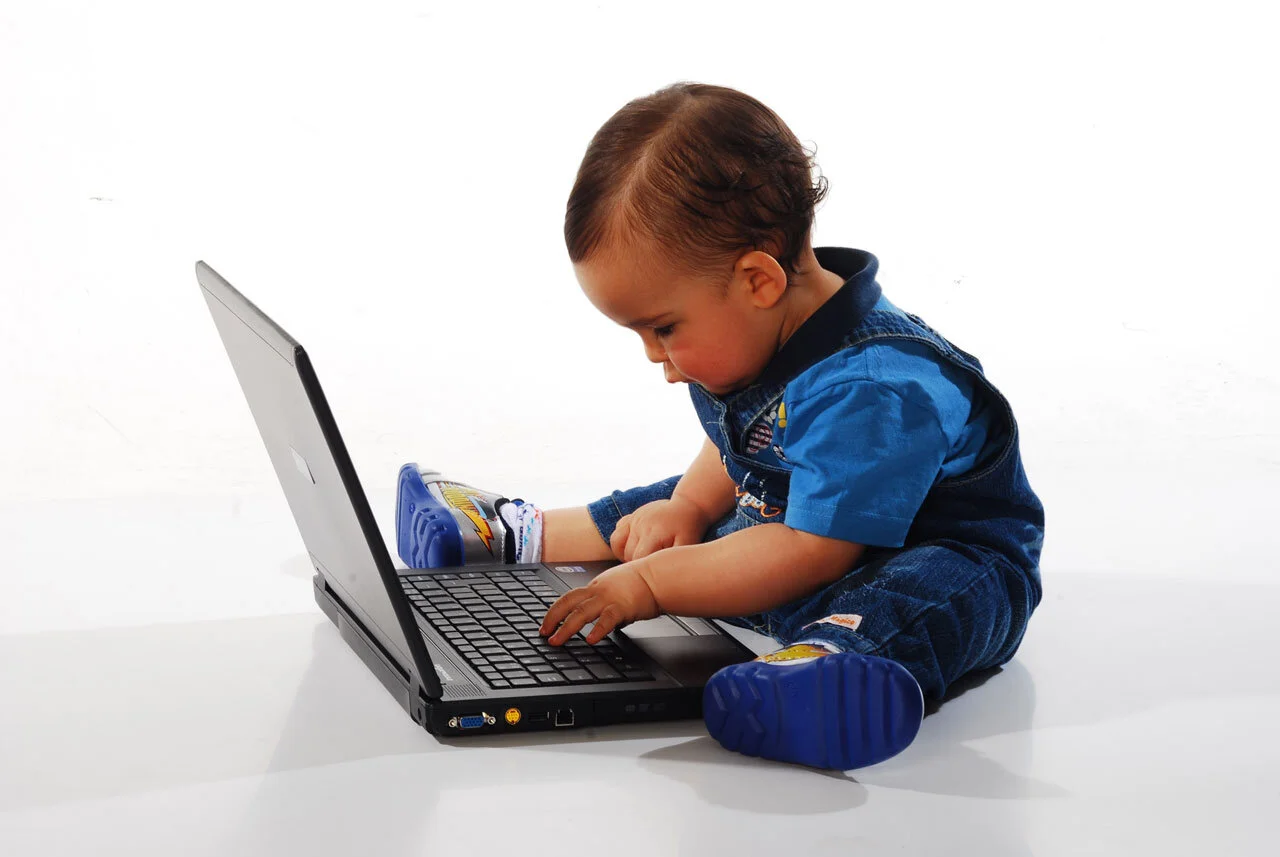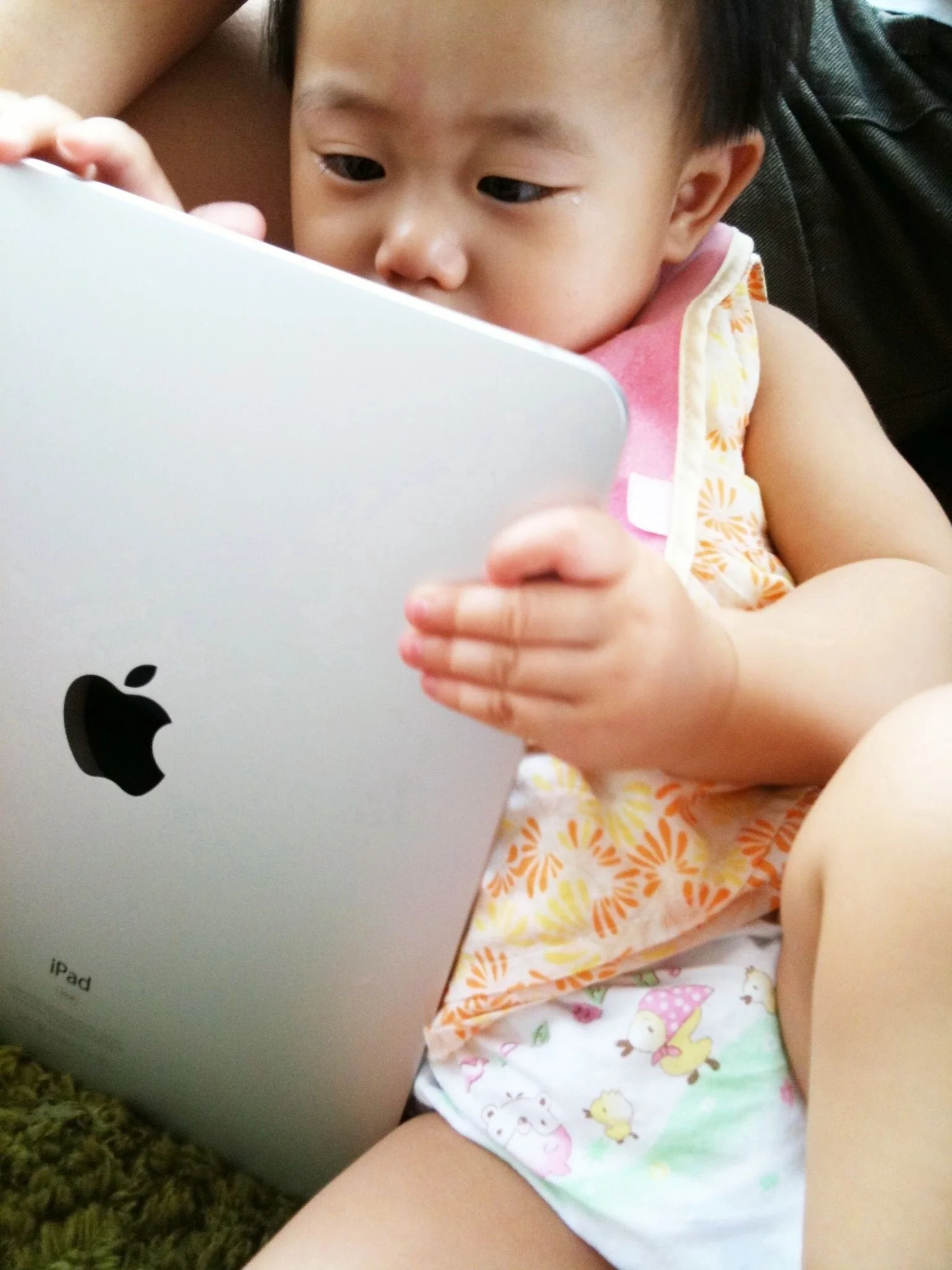How Much do Babies Really Learn from Videos?
By Megan Sumeracki
With the COVID-19 pandemic, there has been a great deal of discussion about kids learning from videos and through virtual classrooms (like Zoom). Many of these discussions revolve around whether kids, especially younger school-aged children, can learn in the virtual environment.
Of course, learning from technology is not new. Educational videos have been around for centuries—I personally remember The Magic School Bus fondly—and some videos are even marketed to babies. The first Baby Einstein video was released in 1997, and since then there have been a very large number of videos created specifically for very young children. A large sum of money has been spent by parents on these videos, and many now flood the YouTube market. Parent testimonials claim that babies pay a lot of attention to these videos when they are on, and parents can get things done around the house while the videos are playing. Parent testimonials also claim that their babies learn a great deal from them. But do they? If your goal in turning on one of these videos is to help your baby learn, will it actually work?
Image from Flickr, Ken Lee
Judy DeLoache and colleagues (1) addressed this question in a Psychological Science article. They asked whether babies could learn new vocabulary words from a highly-rated video marketed for infants. Babies age 12-18 months were first tested to see how many of the target words from the video they knew (e.g., clock, table, tree) to get a baseline. Then, the babies, and their parents, were randomly assigned to one of four conditions. Two conditions involved the video, and two conditions did not.
Video-with-interaction condition: The babies watched the video with a parent at least five times per week (20 times in total over 4 weeks). The parents were instructed to interact with the babies during the video.
Video alone condition: The babies watched the videos alone, again 20 times in total over 4 weeks.
Parent-teaching condition: The parents were given the list of words that the video was supposed to teach the babies. Parents were instructed to try to teach their child as many words as they could, in whatever way felt natural to them, for 4 weeks.
Control condition: In this condition, there was no intervention. This allowed the researchers to see how many of the words from the video were learned naturally by babies across 4 weeks.
At the end of the four weeks, the researchers tested the babies to see how many of the target words from the video were learned. (To make sure the babies really knew the words, they actually had to get each word correct twice in order to earn credit on the final test.) The researchers also asked the parent in the video conditions questions about the video.
Image from Public Domain Pictures
How much did the babies learn?
The babies who watched the video, either alone or with a parent, did not learn any more new words than those in the control condition without any intervention, despite watching the video 20 times over the course of a month. This means that the video did not teach the babies any of the new words. The finding may be especially surprising given that parents reported the babies loved the videos and were certainly paying attention to them. One parent even noted:
“She loves the blasted thing. It’s crack for babies!”
The babies who learned the most were those in the parent-teaching condition.
Parents’ perceptions of the videos
The researchers asked the parents questions about the videos at the end of the experiment. They found that parents’ judgments about how much their babies learned from the videos were unrelated to how many words they actually learned. Their judgments were, however, related to how much the parents indicated they liked the videos. In other words, the more the parent liked the video, the more the parent thought their child learned from the video (even though this learning judgment was not at all related to actual learning). This finding follows a trend we often see in the literature, where perceptions about learning, unfortunately, do not match what is actually helping us learn.
These videos may help parents get things done around the house, and this can be very valuable (self-care and the mental health of parents is important!). However, to really teach our littlest family members new words, good old-fashioned parent teaching is best.
Image from Pixabay
References
(1) DeLoache, J. S., Chiong, C., Sherman, K., Islam, N., Vanderborght, M., Troseth, G. L., Strouse, G. A., & O’Doherty, K. (2010). Do babies learn from baby media? Psychological Science, 21(11), 1570-1574.





